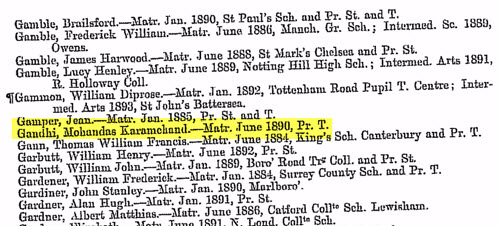by Lisa Cooke | Sep 29, 2017 | 01 What's New, Australian, British, Irish, Newspaper, Records & databases |
If you’re looking for Irish ancestors, you’ll be delighted by all the new Irish record collections added this week! Also in this week’s new and updated record collections are court records and newspapers for Australia, parish records and more for England, millions of new Dutch records, South African probate records, and digitized newspapers across the United States.
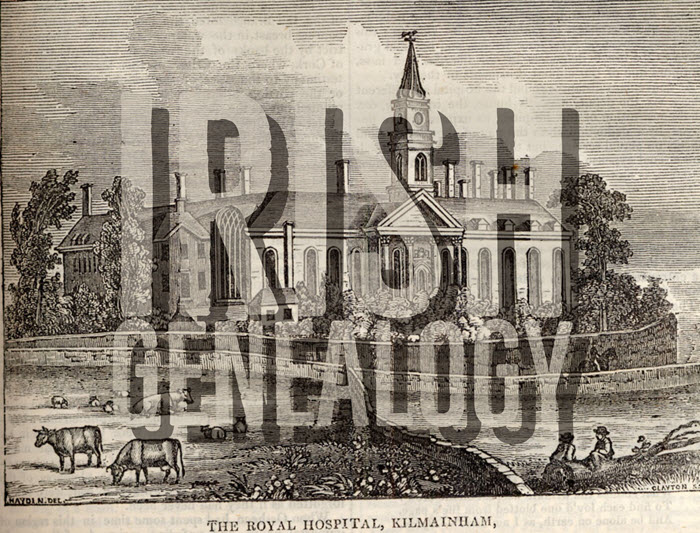
Irish Genealogy: Thousands of New Records

If you have ancestors from Ireland who received an army pension between 1724 and 1924, you’ll want to explore Fold3’s new collection of Royal Hospital Kilmainham Pensioner Discharge Documents. This collection is made up of certificates of pensioners of the Royal Kilmainham Hospital in Ireland. According to the collection: “For each record, details given include, where available: a brief description of the pensioner together with age, place of birth, particulars of service and the reason for discharge.”
New this week at Findmypast are Dublin Electoral Rolls. This new collection contains more than 427,000 transcripts and pertains to eligible voters located in the city of Dublin between 1908 and 1915. (FYI: You can also search Dublin City Electoral Lists 1908-1915 and other records for free from the Dublin City Council’s Civil Records webpage.)
Lastly, Irish records got a big update over at the Irish Genealogical Research Society (IGRS): 5,000 records have been added to IGRS’s Early Irish Birth, Marriage, and Death Indexes. This brings their total number of names to almost 260,000. From the announcement: “This particular update draws from a range material: surviving 19th century census records; marriage licence indexes; pre-1922 abstracts from exchequer and chancery court records; memorial inscriptions; biographical notices from newspapers; a large number of long forgotten published works on particular families and places; and memorials from Ireland’s Registry of Deeds.”
New Resources for Australia
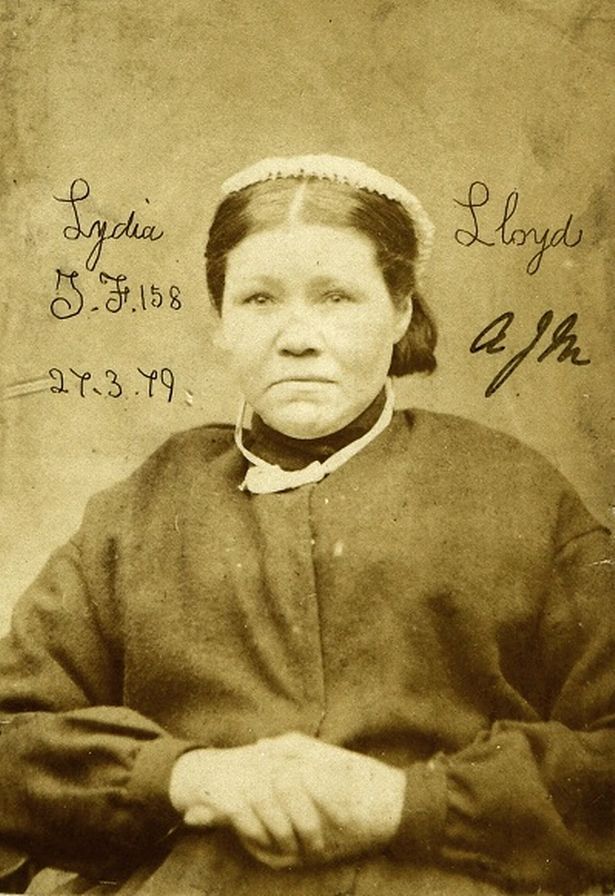 A fascinating new free website, Tracing London Convicts in Britain & Australia, 1780-1925 allows “genealogists and family historians to discover the fate of ancestors convicted of crimes and transported overseas.” This new website allows you to search millions of records from around fifty data sets, relating to the lives of 90,000 convicts from the Old Bailey. Pictured right: Lydia Lloyd, a Victorian era convict. (Image: The National Archives UK ref. PCOM4/71/6 (image 00001))
A fascinating new free website, Tracing London Convicts in Britain & Australia, 1780-1925 allows “genealogists and family historians to discover the fate of ancestors convicted of crimes and transported overseas.” This new website allows you to search millions of records from around fifty data sets, relating to the lives of 90,000 convicts from the Old Bailey. Pictured right: Lydia Lloyd, a Victorian era convict. (Image: The National Archives UK ref. PCOM4/71/6 (image 00001))
From the State Library of New South Wales Australia: The Lone Hand (1907-1921) newspaper has been digitized and made available through Trove. “Modelled on the London Strand and founded by J.F. Archibald and Frank Fox, The Lone Hand was a monthly magazine of literature and poetry, with illustrations by significant Australian artists of the time.”
England: Parish & Court Records
Ancestry.com has two new collections this week for England. Staffordshire Extracted Church of England Parish Records, 1538-1839 includes records for baptisms/christenings, burials, marriages, tombstone inscriptions, obituaries, tax lists, wills, and other miscellaneous types of records for Staffordshire, England. Also included are some records from non-conformist churches. Extracted Parish and Court Records, 1399-1795 is a collection of historical parish registers throughout England.
Also new for England, TheGenealogist has added over 1.1 million individuals to its Sussex County parish record collection. This update includes 717,000 baptisms, 213,000 marriages, and 208,000 burials.
Over at Newspapers.com, The Atlas newspaper has now been digitized. The London area paper operated from 1826 to 1869, and comprised a mixture of national and international social and political news, along with literary, theater, and music reviews. Another new newspaper available online is The Worthington Herald, from 1920-1959 in Worthington, West Sussex, England.
Millions of Dutch Records
FamilySearch has recently published millions of Dutch records (51 million to be exact) from the Netherlands, making it easier than ever to trace your Dutch roots. These new records have increased FamilySearch’s collection of Dutch names from 4,074,736 to over 55 million. From the collection description: “Archives around the Netherlands have contributed indexes which cover many record sources, such as civil registration, church records, emigration lists, military registers, and land and tax records.” Click here to search the collection.
South Africa Probate Records
New at FamilySearch: South Africa, Cape Province, Probate Records of the Master of the High Court, 1834-1989. This impressive collection is comprised of over 155,000 indexed records and 1.1 million digitized images! The original records are located in the Cape Archives Depot, Cape Town.
United States Newspapers
California. The Cal Poly University student newspaper has been digitized in honor of their 100 year celebration. 75,000 pages from 7,138 issues are now fully searchable online, thanks to optical character recognition (OCR) technology. Click here to explore the database.
North Carolina. Saint Mary’s Student School Newspaper, The Belles, is now online. Dating back to 1936 through 1995, the paper gives a good look into the viewpoint of North Carolina teen women over a 60 year period.
New Mexico. Now available at Newspapers.com is the Albuquerque Journal, with issues dating back to 1882. Almost 2 million pages are available to browse by date.
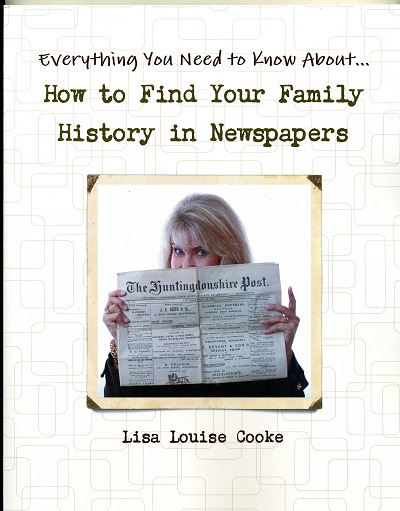
There’s a wealth of information about your ancestors in newspapers! Lisa’s book, How to Find Your Family History in Newspapers, provides you with a foolproof research process for discovering them, and is stuffed with everything you need for genealogical success. Available in both print and ebook formats, you’ll get step-by-step instructions, worksheets, tons of free online resources, case studies, and more!
Disclosure: This post contains affiliate links and Genealogy Gems will be compensated if you make a purchase after clicking on these links (at no additional cost to you). Thank you for supporting Genealogy Gems!
by Lisa Cooke | Nov 17, 2017 | 01 What's New, Genealogy Giants Websites, Records & databases
Enjoy millions of new records from the ‘Genealogy Giants’ websites this week: Ancestry, FamilySearch, Findmypast, and MyHeritage! New collections are now available for England, Ireland, the Netherlands, and Denmark. Also new are two collections of WWII Holocaust records.
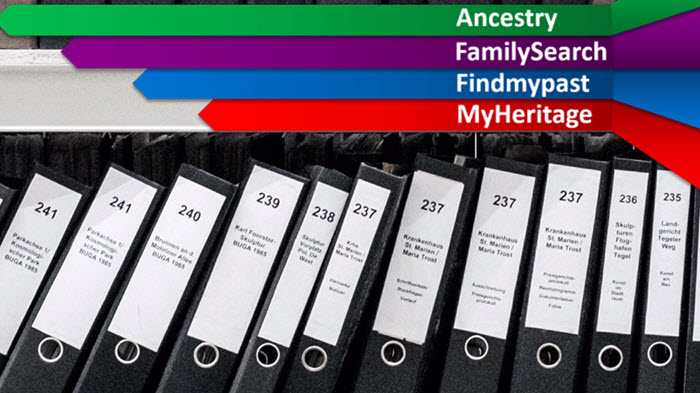
England Records at Findmypast & Ancestry
A massive amount of new records at the ‘Genealogy Giants’ websites were published this week. First up are millions of new English records collections. We’ll start with Findmypast’s new databases:
Surrey, England
- Lay Subsidies 1524-1645: early taxation records from the Tudor and Jacobean periods.
- Court Cases 1391-1835: The records contain cases from four courts and will give you the necessary references for accessing the original records in The National Archives.
- Wills & Probate Index, 1470-1856: The area covered includes the old county of Surrey in the southeast of England, which contains parts of South London.
British Army Records
- Commonwealth War Graves Commission Debt Of Honour: Transcripts will reveal when your ancestor died, their rank, regiment service number, and age at death.
- British Armed Forces, Roman Catholic Registers: The registers comprise records for the British Army, Royal Air Force, and Royal Navy stationed at home and abroad between 1836 and 1975. You can also browse the original registers for this collection.
- British Army Lists 1839-1946: Includes details such as birth date, rank, and unit. You may also browse by year and title.
- East Surrey Regiment 1899-1919: Spanning the Boer War and the First World War, this index may reveal rank, regiment, and battalion, as well as whether your ancestor was wounded or received a medal.
- Railwaymen Died in The Great War: This index of records comes from the National Railway Museum website and may contain details of your ancestor’s pre-war career, military service, and death.
Next, we head to Ancestry for even more new English record collections.
Lastly, FamilySearch has a new collection of Essex Parish Registers, 1538-1997. This collection contains christening, marriage, and burial entries.
Ireland – Findmypast
New at Findmypast for Ireland are British Army, Irish Regimental Enlistment Registers 1877-1924. This collection has enlistment registers from five Irish regiments serving in the British Army. The regiments included in these records are Connaught Rangers, Leinster Regiment, Royal Dunlin Fusiliers, Royal Irish Regiment, and Royal Munster Fusiliers.
A new Irish newspaper title has also been added at Findmypast: the Carrickfergus Advertiser 1884 – 1919. The collection currently contains over 1,300 issues and will be updated further in the future.
Netherlands Public Records at FamilySearch
New at FamilySearch: Netherlands Archival Indexes, Public Records. This collection contains nearly 3 million records that cover events like population registration, emigration and immigration, military enrollment and more.
Denmark – 1930 Census Free at FamilySearch
The Denmark Census, 1930 is now available for free at FamilySearch! “Commonly indexed fields include principle name, locality data, gender, marital status, and relationship to head of household.” The images and index were provided in partnership with MyHeritage.
World War II Holocaust Records and MyHeritage and Ancestry
New at MyHeritage are Auschwitz Death Certificates, 1941-1943. Information listed includes name, birth date, death date, birthplace, residence, and religion. The information originates from the Auschwitz Sterbebücher (Death Books).
Ancestry also has a new collection of Romania select Holocaust Records 1940-1945 (USHMM). This collection is primarily in Romanian, but may also be in Hungarian. It was indexed by World Memory Project contributors from the digitized holdings of the United States Holocaust Memorial Museum.
Get the most out of the top genealogy records websites
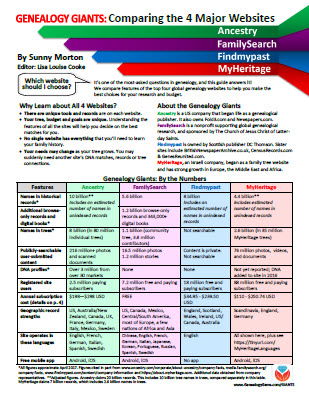 “Which genealogy records membership website should I use?” It’s one of the most-asked questions in genealogy. There are so many features on each site–and an apples-to-apples comparison is laden with challenges. But Genealogy Gems Contributing Editor Sunny Morton has the answers for you in the jammed-packed Genealogy Giants cheat sheet. Use it to quickly and easily compare all of the most important features of the four biggest international genealogy records membership websites: Ancestry.com, FamilySearch.org, Findmypast.com, and MyHeritage.com. Then consult it every time your research budget, needs or goals change. Tables, bulleted lists, and graphics make this guide as easy to use as it is informative. Click here to learn more and grab your copy.
“Which genealogy records membership website should I use?” It’s one of the most-asked questions in genealogy. There are so many features on each site–and an apples-to-apples comparison is laden with challenges. But Genealogy Gems Contributing Editor Sunny Morton has the answers for you in the jammed-packed Genealogy Giants cheat sheet. Use it to quickly and easily compare all of the most important features of the four biggest international genealogy records membership websites: Ancestry.com, FamilySearch.org, Findmypast.com, and MyHeritage.com. Then consult it every time your research budget, needs or goals change. Tables, bulleted lists, and graphics make this guide as easy to use as it is informative. Click here to learn more and grab your copy.
Disclosure: This article contains affiliate links and Genealogy Gems will be compensated if you make a purchase after clicking on these links (at no additional cost to you). Thank you for supporting the free Genealogy Gems podcast and blog!
by Margaret Linford | Jan 31, 2018 | 01 What's New, Court Records, Research Skills |
Using wills and probate records for genealogy can lead to unexpected “inheritances” of your own: clues about relatives’ identities, wealth, personal belongings, and family relationships. Wills can reveal great family stories, too: researcher Margaret Linford entertains her mother with them during trips to the courthouse. Here’s how wills can help your family history—and Margaret’s tips for finding and using them.
Using Wills and Probate Records in Genealogy Research
“Where there’s a will, there’s a way” to find out more about your family’s history.
Wills are legal records created to direct the settlement of a person’s property and other final affairs after his or her death. Probate (or estate) records are created after an individual’s death as part of the legal distribution of the estate and payment of debts. You’ll often find wills as one of many kinds of the documents included in probate records.
Wills and other probate records are valuable research tools, but are frequently neglected as sources of genealogical information. People often focus strictly on birth, marriage, and death records when searching out their family histories. If you rely solely on those records, your research will encounter many brick walls in the early 1800’s.
Probate records and land records were often the only official documents left behind to tell the stories of ancestors who lived prior to the legal requirement for the registry of births and deaths.
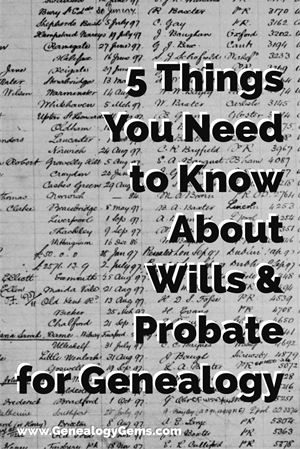
Wills of slaveholders can also be valuable tools in conducting African-American genealogical research. Before the Civil War, enslaved people were listed in wills because they were valuable property of slaveholders.
For instance, in the 1863 Smyth County property tax records, it is noted that Abijah Thomas owned 56 slaves, which were valued at $53,800. Some were given their freedom within wills, while others were transferred to other members of the family or sold. For instance, one of the first wills recorded in Smyth County is that of Hugh Cole.
Within his will, he says the following: “I bequeath to my beloved wife Martha Cole a negro girl named Amanda which she is to hold during her natural life.” The mention of an enslaved person in a will—along with any personal description of him or her—may be the only surviving document to mention that person by name.
Within another Smyth County will, recorded on February 20, 1835, a woman named Elizabeth Blessing left the following directive: “I will and desire that my negro woman Betty be free at my decease, and must see to her own support during her life, as I shall not make any provision for her out of any part of my estate.”
Information Found in Wills Varies
You can find just about anything in a will!
One organ, one compass, chain and plotting instruments, two chests, one hat rack, one music rack, one old United States map. These are some of the items found in the appraisement bill of the personal property belonging to the estate of Abijah Thomas, who lived in the well-known Octagon House in Marion, Virginia.
Here is a photo of that home, now in a dilapidated state, from a Wikipedia file image (click image for attribution.)

Also included in his personal property is a church bell. The story behind the bell is intriguing and illustrates the significance of the probate process.
Abijah Thomas utilized the bell at his foundry works in Marion, Virginia, to indicate shift changes. For decades, the oral history surrounding the bell indicated that he had donated it to the Wytheville Presbyterian Church before he died. The court documents reveal a different story.

Court document regarding the church bell
Since Abijah died intestate, the court appointed three men to appraise his personal property. During this process, the bell was valued at $75. It was sold on September 1, 1877, to the Presbyterian Church in the town of Wytheville, Virginia, as shown in the above list of items sold from his estate.
This document dispels the family myth surrounding the church bell. This is just one of many examples of the types of stories you find in probate records in courthouses all across the United States.
Genealogical Information May be Found in a Will or Probate Records
Wills and probate records can pass along unexpected genealogical wealth to you. You may find the following information in them: date of death (or approximate date of death), name of spouse, children, parents, siblings and their place of residence, adoption or guardianship of minor children, ancestor’s previous residence, occupation, land ownership, and household items.
Probate records also contain such interesting stories that they can even be read for entertainment!
Whenever I go on a research trip, I usually drag some poor, unsuspecting soul along with me. That person is usually my Mom. While she enjoys the scenery on our drive to different courthouses, she rarely enjoys the time spent at the courthouse.
Some of the research I do requires me to stay at the courthouse for several hours. That has posed a problem in the past since I haven’t known how to keep Mom occupied. But I have found the perfect solution. When we arrive at the courthouse, I find an old will book and let her start reading.
My mom enjoys reading the stories in these old—and sometimes tattered—books. One of her favorite stories came from a will in Henry County, Virginia. It is the will of Addie T. Thornton and reads as follows:
“I also give to my nephew Thomas T. Earles, fifty ($50) in cash to be deposited in some safe Banking Institution, on interest until he arrives at the age of twenty-one (21) years old and then the principal to be invested in a watch and I request that a monogram with both his and my name, one on inside and the other on outside of watch.”
Obviously, Addie Thornton cared deeply for her nephew, Thomas, and wanted to make sure he remembered her for the rest of his life.
Here’s part of Addie’s will, followed by a closeup image of the lines about the watch:
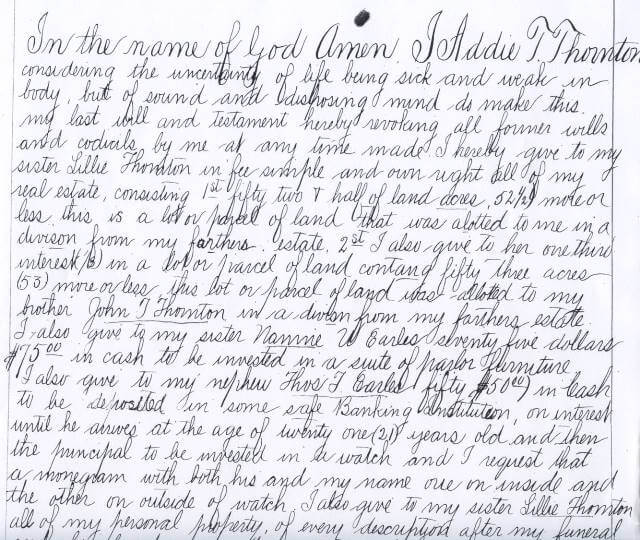

Stories like these are so much more meaningful than just a date of birth, marriage or death. Wills can help us know who these people were, how they lived and what was important to them during their sojourn here on earth. We can learn of their struggles and their successes. We can tell what their lives were like by reading through the lists of household items included in the inventories that are recorded.
And with stories like Addie’s bequest of the watch, we can also learn about ancestors’ personalities and how they expressed (or occasionally withheld) love for others through the final disposition of their belongings.
How a Will is Created
Before beginning probate record research, it is important to be familiar with the probate process and legal terminology associated with these records. It is estimated that, prior to 1900, about half of the population either left a will or was mentioned in one. Those who died having left a will are said to have died “testate.” Those who died without leaving a valid will died “intestate.”
A typical, legally-recognized will contains certain critical elements. It should be in written form and it must have signatures of the person leaving the will (“testator”) and witnesses, who attest to the validity of the document. A codicil is a document created by the testator to amend the will.
Once the testator dies, the will is presented to the judicial authority by a family member or executor/executrix (person appointed by the testator to see that his/her wishes are carried out), accompanied by a written application or petition for probate.
These petitions include names and addresses of the closest living relatives. The court then admits the will to probate and sets a hearing, providing an opportunity for interested parties to contest the will. The will is then recorded and the executor is given the authority to settle the estate. During this process, an inventory of the estate is made.
Some wills contain detailed information, regarding the testator’s final wishes. At times, these requests will shed light on relationships that might not otherwise be discovered. This was the case for a will on file at my local courthouse. Due to the nature of the requests made by the testator, I have changed the last name of the family to Smith. This wife was, obviously, upset with her husband and the circumstances of their marriage, providing clear details of her grievances for future generations.
“Since my husband has never made me a part of his family and has completely cut me out of ever living in Chihowie, Virginia [the husband’s hometown], or never provided me with a home or paid any of my bills and has broken all marriage contracts that we agreed to—I hereby decree that I be buried in Round Hill Cemetery at Marion, Virginia, where I own a lot—that my body or anything I own or possess will never be taken into Chilhowie or the Smith household.
My husband has never taken me into his own home, and furthermore stated, backed up by his nephew and his wife, whom he turned everything over to shortly after our marriage—that I would never own or live on a foot of the Smith ground, even though I have tried to build or buy or remodel a home in Chilhowie, Virginia, at my own expense.
“I give all books and material things pertaining to books to the Smyth County Library, Marion, Virginia, as I am sure that my family would not want anything to fall into the hands of anyone who has mistreated me.
“My husband has kept our marriage strictly on a time clock basis since his nephew and his wife moved back to Smyth County, and under their influence he comes at 6:30 or 7:00 p.m. (whichever is convenient to them) or later, and leaves promptly in the morning by 8:00 or 8:30 a.m., never calling during the day or show[ing] any sign of caring. He changed completely after they returned to Chilhowie to break up the marriage. Therefore, if I am still his wife, or otherwise, see that my wishes are carried out and that my remains and possessions remain in Marion.”
Where to Find Wills and Probate Records
The best place to search for a will is at the courthouse where your ancestor lived, if you can reasonably go there yourself.
Since the probate process is a function of state governments, the laws governing the maintenance of these records and their location will vary by state and should be researched before making a trip to the courthouse.
For example, in Virginia, probate records are maintained within the Circuit Courts and independent cities. In Massachusetts, probate records are found in county Probate Courts.
A useful resource for figuring out how U.S. probate records are organized state-by-state is free on the Ancestry.com wiki: Red Book: American State, County and Town Sources. Scroll down to click on the name of the state in question. Then go to the right side and click on the probate records link for that state to read about these records.
Once you have determined where the wills for your state/county are housed, the next step in the research process is to locate the Index for Wills. Even–perhaps especially–if you are unsure of the date of death for one of your ancestors, you may want to look through the index of wills (an example is shown here). Even when no specific death record exists, you may be surprised to find probate records that reveal the date of death, a list of heirs and more.
There will, most likely, be several index books, organized by year spans. These books serve as a compass, pointing you to any available probate records that may include your ancestors. The index is divided by devisor (the person making the will) and devisee (any person who is named in the will, as the recipient of property).
The research process will be incomplete if you do not conduct a search for your ancestors among the list of devisees. Even if you fail to find their names among the devisors, they could have inherited property from someone else.
Probate records include more than just the will of an individual. You may find letters of administration, lists of heirs, inventories, bills of appraisement, guardianships and other documents related to the settlement of an estate. In some counties, all these documents are found in the same collection. Other counties maintain these records in separate collections. It is important to understand the manner in which probate records are organized for your particular county.
The probate research process should not be rushed. Valuable records may be overlooked when time dictates the quality of your research. For this reason, it is important that you set aside ample time to comb through the probate records. If you find yourself confused about abbreviations or the location of records within the courthouse, there is usually someone in the records vault who would be happy to assist you. Never be afraid (or embarrassed) to ask for help.
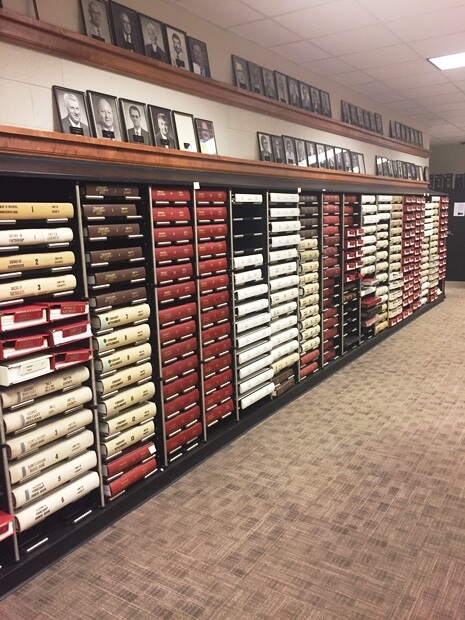
Fortunately for many of us who can’t easily get to every ancestor’s courthouse, there are some wills available online on genealogy websites, including two of the genealogy giants, FamilySearch and Ancestry.com.
For example:
- Subscription website Ancestry.com has made it a priority to curate an enormous collection of wills and probate records from all 50 states. At last count, this collection has more than 170 million records—and they keep adding to it.
- The free FamilySearch.org hosts millions of probate records from the U.S. and around the world (click here to browse their probate and court record collections). Many of these collections are marked “browse-only,” which means they are not yet searchable by name online. You just have to page through them. Click here for instructions on reading browse-only records on the site (it’s not that difficult—and did I mention they’re free?).
Additionally, libraries or genealogical societies in your ancestor’s hometown or county may have books with abstracts from local wills or other resources related to local probate record research.
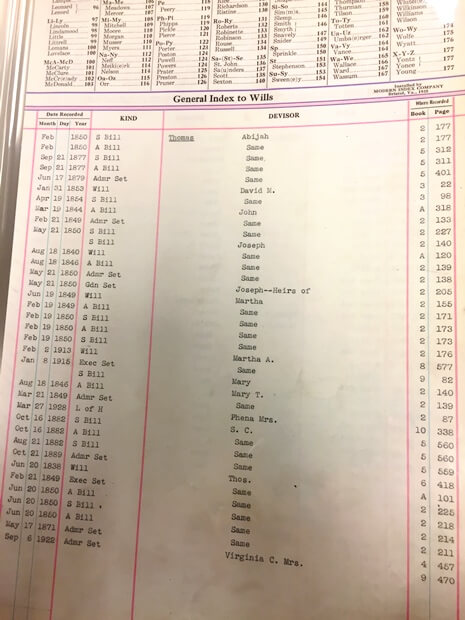
General Index to Wills
Well Worth the Effort
Finding the will of one of your ancestors is an amazing experience. Walking into the vault of a courthouse sometimes feels like walking into a time machine. As you read through the pages that tell of people who lived so long ago, you feel like for even just a small moment that you have gone back in time. You are sitting with them and hearing their stories whispered through the aging and brittle pages that have been left behind. They are all there just waiting to tell their stories. So take the opportunity to go to the courthouse and “meet” your ancestors through the one of the last—and perhaps one of the most revealing—documents they may ever have written: their wills.
Researching Wills and Probate Records: Your Next Steps
Take your genealogy research to the next level by planning a trip to a courthouse to retrieve records like wills and probate records. These articles and podcast episodes will help you get ready:

Disclosure: This article contains affiliate links and Genealogy Gems will be compensated if you make a purchase after clicking on these links (at no additional cost to you). Thank you for supporting Genealogy Gems!

Margaret Linford is a professional genealogist who specializes in the Mid-South Region of United States research and has logged over 20,000 research hours. Born and raised in Virginia, she has enjoyed traveling the world, and now lives in her childhood hometown with her husband and children. She enjoys teaching her children about heritage, taking them along on research trips and serving as President of the Smyth County Genealogical Society.

 A fascinating new free website, Tracing London Convicts in Britain & Australia, 1780-1925 allows “genealogists and family historians to discover the fate of ancestors convicted of crimes and transported overseas.” This new website allows you to search millions of records from around fifty data sets, relating to the lives of 90,000 convicts from the Old Bailey. Pictured right: Lydia Lloyd, a Victorian era convict. (Image: The National Archives UK ref. PCOM4/71/6 (image 00001))
A fascinating new free website, Tracing London Convicts in Britain & Australia, 1780-1925 allows “genealogists and family historians to discover the fate of ancestors convicted of crimes and transported overseas.” This new website allows you to search millions of records from around fifty data sets, relating to the lives of 90,000 convicts from the Old Bailey. Pictured right: Lydia Lloyd, a Victorian era convict. (Image: The National Archives UK ref. PCOM4/71/6 (image 00001))



